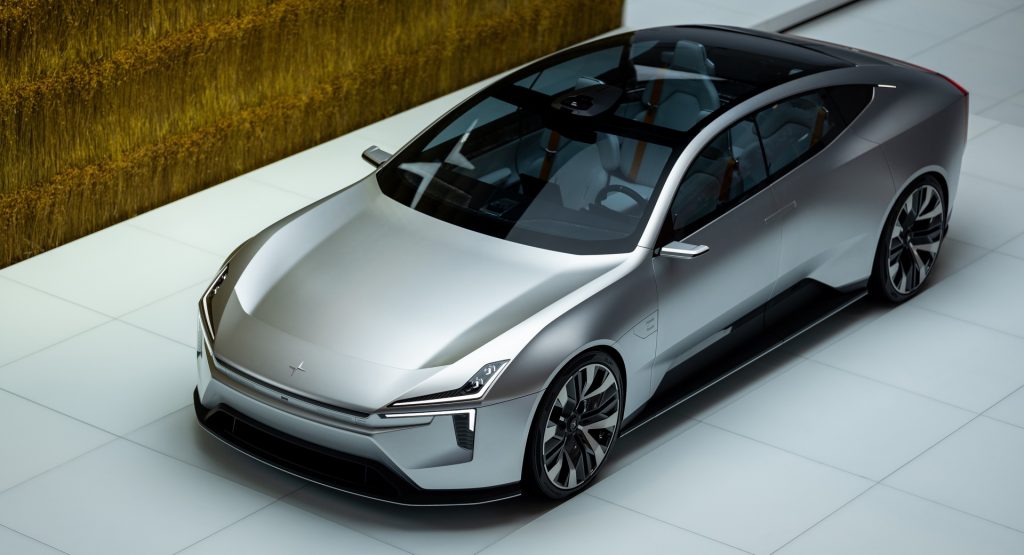Anyone who says that art has no tangible impact on the world clearly doesn’t work at Polestar. The automaker has developed a new biodegradable resin that’s more environmentally friendly thanks to an art piece it commissioned late last year.
The work, “We Harvest Wind”, was presented in October as a joint project from Polestar and artist Thijs Biersteker. Intended to draw attention to the power humans possess to bring renewable energy to the fore, it behaved a little bit like a windmill that visitors to the exhibit could control with fans.
In creating the blades for the art piece, the teams looked at Bcomp powerRibs and polypropylene, two flax-based composite materials that were featured extensively in the Polestar Precept concept car. Biersteker was disappointed, however, to discover that these materials used fossil fuel-based polypropylene resin.
Read Also: New Carbon Fiber Fabrication Method Promises Cheaper And Greener Production
“When you’re creating artwork that talks about environmental impact, you have to create something that doesn’t impact the world too much itself,” said Biersteker.
So the artist worked with Polestar’s U.K. R&D team to develop a new, greener resin for the art installation.
“We made the blades in the sculpture from 3D printed recycled PET plastic, and the outer wings were made with the flax-based structure and a new eco-friendly and corn-based resin,” said Biersteker. “We developed a composite between the flax and polylactic acid (PLA), which is basically a biopolymer that is biodegradable and made of corn. The combination of these two materials created a really organic feel to the artwork.”
The result is a new resin that is biodegradable and not fossil-fuel-based, making it more environmentally friendly. The innovation has been so successful that Polestar is now looking at ways of incorporating the new resin into its vehicles.
“This collaboration has kick-started several initiatives within the team at Polestar and cemented some ongoing studies we have with Bcomp,” said Ross Kelk, chief engineer for interiors at Polestar’s U.K. R&D. “Now we are hoping to implement a fully bio-based solution, with powerRibs and bio-sourced polypropylene, in the future production of Polestar cars.”

























